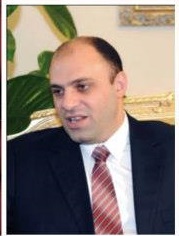By Christopher Le Coq
The EGX 30 posted gains that were modest for 2010, signifying that this year won’t go down in the books as one of the most memorable.
The market rallied in the first quarter of the year, slid downwards a tad in the second, only to perk back up in the third, and with final figures for the last quarter still to be released.
After surging throughout 2009, growing by 35.1 percent — largely imputed to the bounce back following the wake of the financial meltdown — this year managed to expand by 11 percent, which Angus Blair, director of research at investment firm Beltone Financial, qualified as “solid” yet “altogether surprising.”
In 2010, a high contribution from non-Arab foreigners to the stock market was manifest, reaching 16 percent, which was an increase from last year’s 13 percent, pointed out Mona Mansour, director of research at investment firm CI Capital.
The EGX 30 closed Dec. 23 at 6,951 points. Meanwhile, the EGX 70 and 100 were up 10 and 15 percent respectively, with the former reaching 738.99, the latter 1,168.86.
Initial Public Offerings (IPO) made a comeback, first with Juhayna Food Industries and then with Amer Group, an Egyptian construction firm.
Issued in November, Amer Group’s IPO was oversubscribed by 5.8 times and its shares were sold at LE 2.80, whereas Juhayna’s took place in June — the first for the EGX in over two years — was oversubscribed by 7.8 times and its shares were sold slightly higher at LE4.66.
Mansour explained that this dynamic was largely due to “liquidity issues, especially since allocations have been minimal and investors have been holding their cash un-invested for quite some time.”
For his part, Blair noted that the global community remains skittish due to “unsustainably high levels of debt” in advanced economies, leaving investors “cautious.”
While inflows of portfolio and fixed income investments have stayed “positive” into Egypt, investors, he continued, “have not re-entered the market to the same degree that they were in the early months of 2008.”
Arab Gathering Investment Group’s stock took the cake as the best performing stock as it increased by 1,834.7 percent, while Ajwa for Food Industries Co. slipped by 73.7 percent, making it the worst performer, and which was added to the stock market this year only several months ago.
Citadel Capital, a private equity firm, was also added to the EGX 30, alongside Sidi Kerir Petrochemicals, Nasr City Housing and National Real Estate Bank for Development, both of which were then delisted.
Trading on the Nile Stock Exchange, the Nilex, an exchange for small and medium sized enterprises, kicked off in June, but activity has remained unimpressive, not living up to the much-anticipated addition the market.
The Egyptian stock Exchange witnessed a change in leadership when Prime Minister Ahmed Nazif appointed Khaled Serry Siam as chairman. Previously the deputy of the Egyptian Financial Supervisory Authority, Siam was also the former president of the Capital Market Authority, replacing his predecessor, Maged Shawky.
November’s parliamentary elections resulted in investors lying low, watching on the sidelines on the lookout for any undesired political risk.
While globally the EGX performed well, managing to stay within a firm growth zone, Mansour’s firm, CI Capital, noted that the performance of the EGX has not accurately reflected the overall performance of the Egyptian economy’s growth, which will round out the year at 5.1 percent, thereby leaving “broad room for growth” within the Egyptian stock market.
With presidential elections looming in 2011, which are likely to be particularly unnerving, political risk following this fall’s parliamentary elections may well continue to dampen investors’ appetite for what’s on the EGX’s menu.



